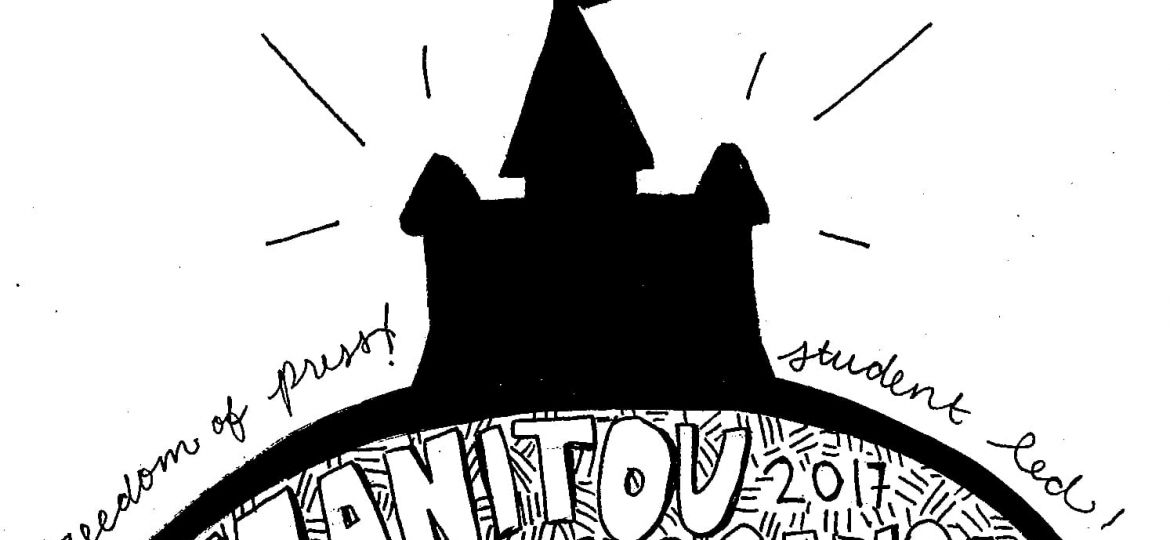
To start off, like any responsible journalist, I’ll call attention to my bias. My bias is that a large part of my college experience cannot be separated from my hours in the Manitou Messenger office. Most of the biggest moments of college happened in Buntrock 110, with the couch that I rescued from the side of Ole Ave, the donut-patterned blanket Emma Whitford’s friend sent her, the little purple tinsel Christmas tree and the Will and Kate poster that predates us all.
Many of my friendships were grown and solidified there, born out of the spikes and dips of energy that emerge when a bunch of people are working hard at something important under a deadline. We joke, we laugh, nearly everyone has cried.
Every year, the Messenger staff starts as a group of people that has nothing in common but a fondness for writing. Every year we end up friends, learning more about each other in between late production nights and squirrelled-away bag lunches.
Our collective wit accumulates and refines itself over several months before erupting in the satire edition, the one time of year we are truly popular.
My freshman year I was a staff writer, my sophomore year I was the news editor and last year I served as the executive editor. This year I have taken a back seat from the action, but I have come to appreciate the Messenger’s work even more. We provide a free service to the St. Olaf community that I think is invaluable.
According to Frank LoMonte’s CNN op-ed entitled “A free press shouldn’t stop at the schoolyard,” “Student journalists are, increasingly, the information lifeline for their communities. With employment in traditional newsrooms hitting historic lows, down 42 percent since 1990, the public is more reliant than ever on students to sound the alarm if schools are unsafe or ineffective – or if there’s any story unfolding on their campus that could affect their community.”
And since our founding in 1886, we have indeed told the stories unfolding on our campus. We’ve talked about racism, war, civil unrest, sexual misconduct and sexual assault.
We’ve offered serious news coverage and opinions, and glimpses into the lives of the faculty, students and staff who live and work here. We’ve written fun and fluffy pieces. That’s not say we have ever done this perfectly: we’ve struggled, messed up very badly and learned from our mistakes.
The Messenger has waxed and waned throughout the years, but it has always been a platform for students to openly talk about what matters to them. This concept is incredibly important.
The college produces their own narratives, and those are essential for fundraising and growing the student body, and those things are important to keep the school ticking. But it is also vitally important that there are some narratives present on campus that don’t have this agenda, and that they are able to be expressed on a legitimate platform with proper resources and support.
“The case for protecting press freedom in schools isn’t just about training future journalists,” LoMonte continues. “It’s about developing inquisitive, participatory citizens willing to ask the hard questions of government authorities that involved citizenship demands.”
So thank you, readers and subscribers, for your support. I’m grateful for what we have now, and as the future of journalism becomes more and more murky, I hope all of us fight for it in every context.









